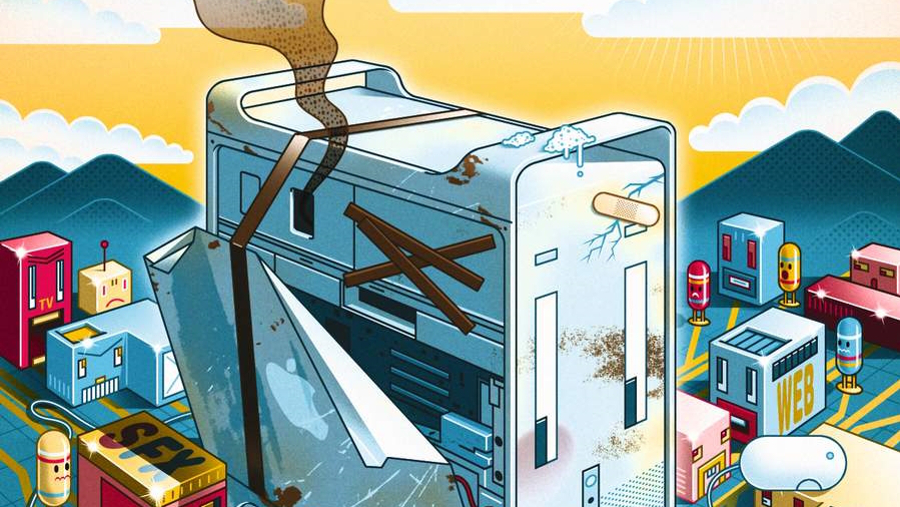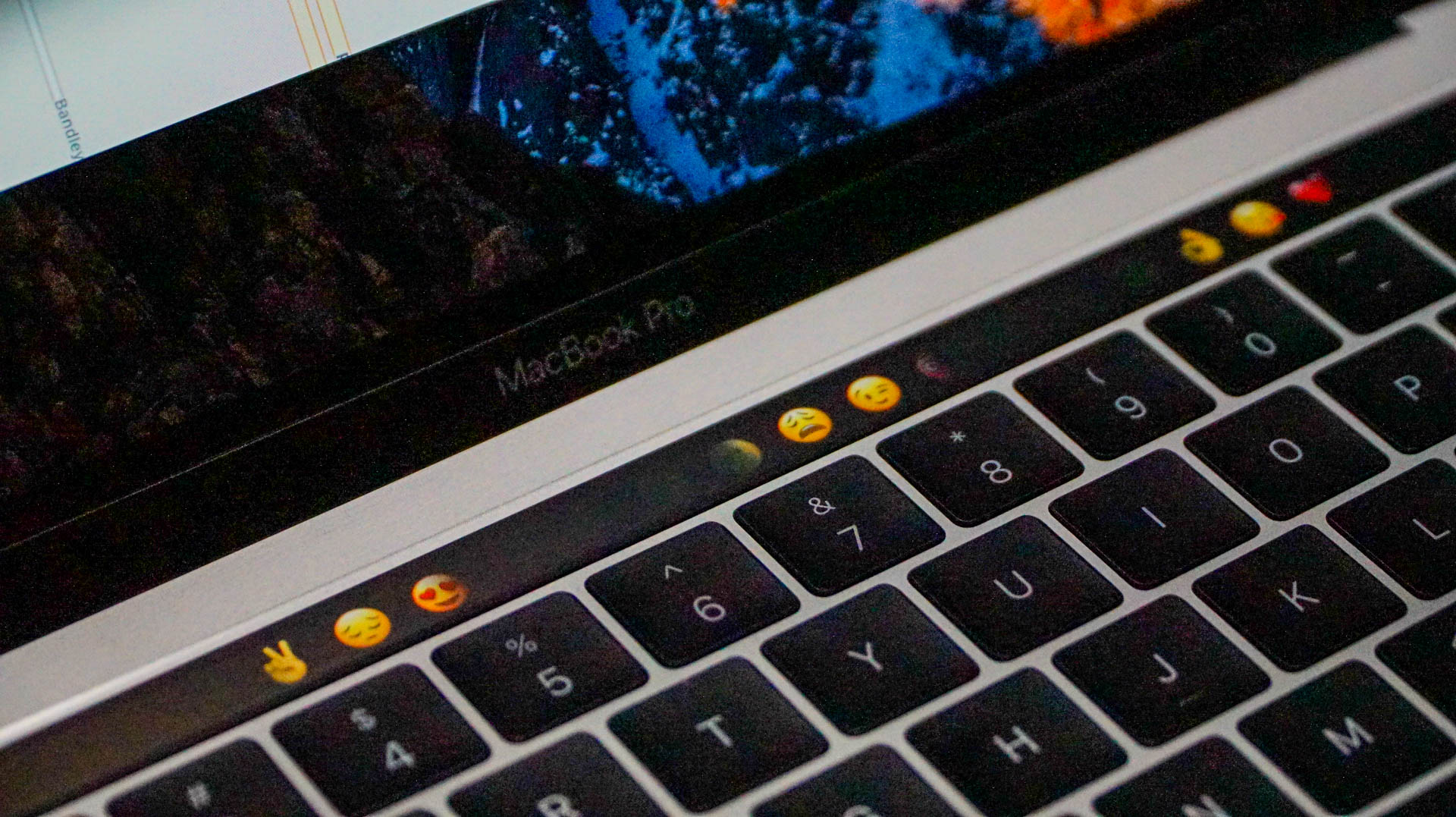The Mac in 2017: the last gasp for Apple's desktop?
Opinion: this will be a pivotal year for the Mac

In December, Microsoft made a surprising announcement: more Mac users are switching to Surface devices than ever before, partly due to “the disappointment of the new MacBook Pro.”
It’s important to take rivals’ claims with a huge pinch of salt, of course, but at the same time the ever popular MacRumors’ Buyer’s Guide was only willing to recommend a single Mac, the same new MacBook Pro. The MacBook was labelled with "caution", and the MacBook Air, iMac, Mac Mini and Mac Pro were – and at the time of writing, still are – labelled with big red “don’t buy” buttons.
You can see why. All of those Macs are massively overdue updates, assuming Apple intends to update them at all. The worst offender is the “innovation my ass” Mac Pro, which hasn’t been touched since its debut three years ago. In computing, that’s an eternity.
After years of rising sales, Macs are in decline. According to Strategy Analytics, the decline increased from a 3% year-on-year drop in the fourth quarter of 2015 to a 17% drop in the third quarter of 2016. Strategy Analytics’ senior analyst Eric Smith has an explanation: he says that Apple “pretty much forgot about the Mac” in 2016.
He’s not the only person who thinks that Macs aren’t Apple’s top priority, and that they haven’t been for some years now.
Are we seeing the last gasp of the Mac?

It just doesn’t work
You can pin some of the blame for the lack of exciting new Macs on chip suppliers, who haven’t delivered what Apple’s hardware needs to make updates necessary or attractive. Mac updates were similarly sluggish just before Hell froze over and Apple moved from PowerPC to Intel processors. But people’s concerns aren’t just about the lack of hardware excitement. The software is making some Mac fans nervous, too.
Get daily insight, inspiration and deals in your inbox
Sign up for breaking news, reviews, opinion, top tech deals, and more.
Here’s a genuine example: we’d have started this piece earlier, but a minor update to macOS Sierra borked our iMac’s boot disk and took most of our morning with it. The last update killed Boot Camp on our MacBook Pro. We’re battling intermittent Finder errors on our MacBook Air. And don’t get us started on iCloud Drive, Siri or iTunes.

Our experience is not unusual. Legendary tech commentator Walt Mossberg wrote early in 2016 that “I’ve noticed a gradual degradation in the quality and reliability of Apple’s core apps, on both the mobile iOS operating system and its Mac OS X platform,” he wrote. While the core apps generally still work beautifully, the “it just works” mantra no longer applies.
We share the LA Times’ exasperation at Preview’s endless crashes, and we’ll happily echo Marco Arment’s lament that “just a few years ago, we would have relentlessly made fun of Windows users for these same bugs on their inferior OS, but we can’t talk anymore.”
- How to fix common macOS problems
Even John Gruber, aka Daring Fireball, was moved to write that “Maybe we expect too much from Apple’s software. But Apple’s hardware doesn’t have little problems like this.”
The reason is obvious. Apple’s concentrating most of its resources on the iPhone, which is where it makes most of its money and which requires significant annual updates, and on the iPad, which it sees as the future of general purpose computing. New Macs are coming in 2017 – the iMac, at least, is due to be updated imminently – but it’s clear that Apple’s attention is elsewhere.

Will it come back?
In many respects, Apple’s Mac business looks very much like its Mac business of the 1980s: solid but uninspiring, and focused on maximising profits rather than finding the next insanely great thing. The current product range echoes that too: Apple no longer sticks to Steve Jobs’ grid of four distinct Mac lines (consumer desktop, consumer laptop, pro desktop, pro laptop).
But what’s different this time around is that the Mac isn’t Apple’s core business any more. Mobile is.
Since 2009, the iPhone has jumped from 25% of Apple’s revenues to 68%; while Apple shipped 4.2 million Macs in Q3 2016, it shipped 40.4 million iPhones and 9.9 million Macs.
You don’t need to be an accountant to recognize that Apple without the Mac would still be one of the most successful and highly profitable companies in the world.

Macs in a post-PC world
“The Macintosh line of computers is 32 years old”, writes former Apple executive Jean-Louis Gassée. “It has a venerable past… but what kind of future does it have in a declining market?”
As Gassée rightly points out, the Mac is still big business: $22 billion in annual revenue for the year just gone isn’t bad at all, and of course Apple’s profit margins remain huge. But is it a business Apple wants to keep, when the future increasingly looks ARM-powered and iPad shaped?
Industry analyst Horace Dediu is well known for his perceptive analysis of Apple. While he’s quick to applaud the Mac’s continued success, he argues that thinking in terms of Macs vs PCs is a distraction. It’s Macs vs mobile now. “What exactly is the purpose of the Mac in the age of the mobile device?” he asks.
It’s a rhetorical question. “It cannot take on the role of being the future,” - that’s the iPhone’s job. And “it will not morph into a touch device any more than a teen’s parent will become cool by putting on skinny jeans.” For Dediu, “What it will do is become better at what it is hired to do.”
And that’s to deliver non-touchscreen input in jobs where it makes sense to do so. Touch interfaces can be great, but there are some tasks for which the good old keyboard and mouse (or trackpad) and perhaps Touch Bar are better suited. “Alternative ways of doing the jobs it does will with direct input are emerging, but they are not yet good enough,” Dediu argues.
For as long as that’s the case, there will still be Macs.
Writer, broadcaster, musician and kitchen gadget obsessive Carrie Marshall has been writing about tech since 1998, contributing sage advice and odd opinions to all kinds of magazines and websites as well as writing more than a dozen books. Her memoir, Carrie Kills A Man, is on sale now and her next book, about pop music, is out in 2025. She is the singer in Glaswegian rock band Unquiet Mind.
